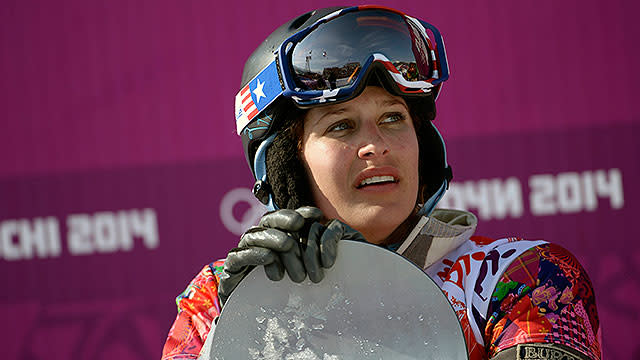Cue the inspiring music.
Load the red, white and blue graphics.
It’s time for the sports world to write the last of the 98 goose-bump gold
medal stories from the Winter Olympic Games in Sochi, Russia.
That’s right, there are less than 100 gold medals to spread across 2,800
athletes. So if you’re one of the Olympians from 88 countries battling over the
remaining 196 silver and bronze medals, odds are the only thing you’re taking
home is a selfie with the Jamaican bobsledders and a set of Russian nesting
dolls.
Isn’t it beautiful?
Sure, we love the inspiring stories of men and women dreaming since the womb
of overcoming the odds in their final race, skate or run to win the gold. Those
will be the stories that dominate the news, and they are the stars soon to make
the television rounds on everything from "Ellen" to "Good Morning America" and
the late-night Jimmy shows in-between.
But it’s not the champions who make the Olympics so inspiring; it’s all those
also-rans. In a world that increasingly rewards mediocrity and resists naming
winners and losers, the Olympics doesn’t just reveal the victors and vanquished,
it showcases them on prime time.
Did you wince when snowboard cross star Lindsey Jacobellis of the U.S.
crashed and burned during her semifinal run? Of course you did. Jacobellis
wasn’t just the favorite, she’s the pre-eminent star of the last decade. She’s
won everything imaginable — except a gold medal.
She fell seconds from a win in Turin in 2006, got tangled and scooted off
course in Vancouver in 2010, and suffered a colossal unforced error last week in
Sochi when she crashed completely on her own with no one in sight. Jacobellis
had so much space on the slope, the closest competitor was relaxing the in the
lodge.
But she’d worked so hard, sacrificed so much and endured so much pressure
that surely she deserved the gold, right?
Wrong.
They don’t give medals for showing up and trying hard. And they don’t always
award the gold to the most talented or more career-consistent, they drape them
around the necks of the athletes who performed the best at the best possible
moment of their sporting lives.
Imagine if at the end of every Olympic event, organizers lined up the
competitors on podiums at exactly the same height to receive a medal made of tin
foil and yarn. That’s not competition. In many American communities, that’s
called Little League.
Too often we demand everyone win a certificate or trophy and we only keep
score if we absolutely have to. This attitude doesn’t just dim the luster of
winning, it dulls the beauty of losing.
Didn’t get the part in the school play? Find out why and try harder. You’ll
be better for the rehearsal.
Didn’t make the basketball team? Get up earlier, take more shots, run more
laps and try again. The worst possible outcome is you don’t make the team next
time, either, but you’re a much more talented and dedicated person for the
practice.
Didn’t win the big spelling bee? Buckle down for next year. You’re out of
years? Oh well, think of how many words you know that your playground pals
don’t.
No one relishes failure and none should feel joy in the pain of others. But
when we see the best athletes give every ounce of themselves and come up short,
we applaud anyway. Their losing efforts are just as inspiring and instructive as
the tales of the winners.
What matters most isn’t standing on the podium and hearing your national
anthem, it’s the work you do for days, months and years to get there. Or, in the
case of most of the 2,800 athletes in Russia, to not get there.
So, you're not coming home from Sochi with a medal? Cue the inspiring music
anyway and take a lifetime of selfies.
And don’t forget the nesting dolls.
Read more of Jason's articles HERE:









